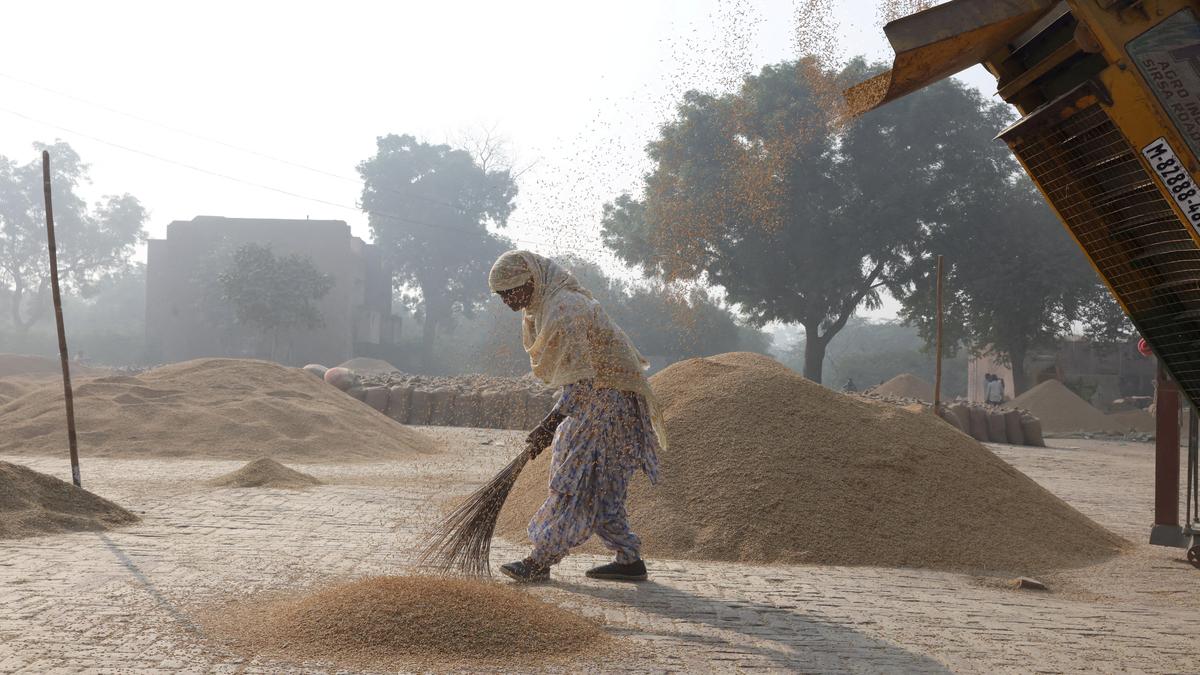What’s in Today’s Article?
- Why in News?
- The Big Problem of Undue Delays in Trials in India
- What is the Asian Resurfacing Case Ruling?
- What was the Impact of the Asian Resurfacing Case Ruling?
- Arguments of the Petitioner and the Government
- On What Grounds has the Asian Resurfacing Case Ruling been Undone?
Why in News?
- A five-judge Constitution bench of the Supreme Court overruled its 2018 decision in Asian Resurfacing v. Central Bureau of Investigation.
- The SC observed that a stay order can only come to an end after all the parties in the case have been heard first.
The Big Problem of Undue Delays in Trials in India:
- In India’s three-tier system of courts, a trial court’s decision can be challenged at every stage, not just at the final stage after a verdict is delivered.
- Stay orders are passed for a court to temporarily halt a judicial proceeding, to secure the rights of a citizen.
- Grant of stay invariably delays the trial (for decades sometimes), irrespective of which side benefits from it. For example,
- If an HC in a case had to consider the challenge against an order framing charges (by the trial court), it would first grant a stay of trial and then grant a date for hearing arguments on framing charges.
- With Courts bogged down with criminal cases that perhaps need more immediate attention, such as bail cases, the hearing against framing of charges gets delayed.
What is the Asian Resurfacing Case Ruling?
- In 2018, a three-judge bench of SC was deciding a batch of cases involving the Prevention of Corruption Act.
- These batches of cases had one aspect in common – that the respective High Courts had granted a stay at some stage of trial.
- In its ruling, the SC (while using its powers under Article 142) held that –
- While a HC has jurisdiction in appropriate cases to consider the challenge against an order framing charge and also to grant stay,
- But how such power is to be exercised and when stay ought to be granted needs to be considered further.
- To address the big problem (of undue delays in trials) plaguing the criminal justice system, the SC held that interim orders of stay at the HC and Civil Court level will be only valid for six months.
- At the end of this period, they will automatically be rescinded or “vacated”.
What was the Impact of the Asian Resurfacing Case Ruling?
- Additional stay trials arose unexpectedly following the 2018 verdict. Lawyers would cite the Asian Resurfacing ruling to alter the status quo. For example,
- Say a frivolous FIR is filed and a trial court has issued summons.
- This would be challenged before the HC, but the HC would first stay the summons and grant a date for the hearing.
- But citing the Asian Resurfacing case meant that a trial court would issue non-bailable warrants suddenly for not appearing before the Court.
- All of this occurred while the HC had not yet heard arguments for quashing the summons itself.
- While this added the load on the HCs and burdened the average litigant, the verdict also raises key questions of law.
- Is it possible for the SC (under Article 142) to order the automatic revocation of all interim orders of the HC delaying proceedings in civil and criminal matters when a specified term expires?
- Whether the SC (under Article 142) can direct the HCs to decide pending cases in which interim orders of stay of proceedings have been granted on a day-to-day basis and within a fixed period?
Arguments of the Petitioner and the Government
- The vacation of a stay is a judicial decision which needs application of mind, without which judicial decisions would become arbitrary.
- Automatic vacation of stay would be antithetical to this principle.
- The Asian Resurfacing judgement infringes on the discretion afforded to HCs to decide applications for vacation of stay orders under Article 226(3) of the Constitution.
- Deciding timelines for judicial proceedings is a decision for Parliament to make through its law-making power, not the courts.
On What Grounds has the Asian Resurfacing Case Ruling been Undone?
- The five-judge bench held that “Sometimes, in the quest of justice we end up doing injustice. Asian Resurfacing is a clear example of the same.”
- The constitutional courts should refrain from laying down precise timelines for deciding cases.
- This highlights the discretion that should be given to lower courts which are more aware of “grassroots issues”.
- The SC also pointed out that courts often have different patterns when it comes to their pending caseload, and so the concerned court is best placed to decide which cases to prioritise.
- Automatically vacating a stay order after six months would in fact “defeat justice” by nullifying interim orders that had been lawfully passed without hearing the parties.
- The six-month time limit would amount to court-created legislation, which is impermissible.
- Only the legislature has the power to decide if a category of cases should be decided within a specific amount of time.
- Article 226(3) of the Constitution already provides a two-week time limit for HCs to consider an application for the vacation of an interim order.
- If the application is not disposed of within those two weeks, Article 226(3) provides that the interim order will be vacated.
Q1) What is Article 142 of the Indian Constitution?
Article 142 provides a unique power to the Supreme Court, to do “complete justice” between the parties, where, at times, the law or statute may not provide a remedy.
Q2) What is Article 226 of the Indian Constitution?
Article 226 provides High Courts with the power to issue certain writs to any person or authority, including Government in appropriate cases for enforcing fundamental rights provided under Part III of the Constitution, or for any other purpose.
Source: Why the Supreme Court overturned its 2018 decision, which set a time limit on courts’ stay orders
Last updated on January, 2026
→ Check out the latest UPSC Syllabus 2026 here.
→ Join Vajiram & Ravi’s Interview Guidance Programme for expert help to crack your final UPSC stage.
→ UPSC Mains Result 2025 is now out.
→ UPSC Notification 2026 is scheduled to be released on January 14, 2026.
→ UPSC Calendar 2026 has been released.
→ UPSC Prelims 2026 will be conducted on 24th May, 2026 & UPSC Mains 2026 will be conducted on 21st August 2026.
→ The UPSC Selection Process is of 3 stages-Prelims, Mains and Interview.
→ Prepare effectively with Vajiram & Ravi’s UPSC Prelims Test Series 2026 featuring full-length mock tests, detailed solutions, and performance analysis.
→ Enroll in Vajiram & Ravi’s UPSC Mains Test Series 2026 for structured answer writing practice, expert evaluation, and exam-oriented feedback.
→ Join Vajiram & Ravi’s Best UPSC Mentorship Program for personalized guidance, strategy planning, and one-to-one support from experienced mentors.
→ UPSC Result 2024 is released with latest UPSC Marksheet 2024. Check Now!
→ UPSC Toppers List 2024 is released now. Shakti Dubey is UPSC AIR 1 2024 Topper.
→ Also check Best UPSC Coaching in India

















